The eco-conscious Ebre Delta in Tarragona is unlike any other part of Spain. We took a few days to explore the rice, the food, the wine and even the sake.
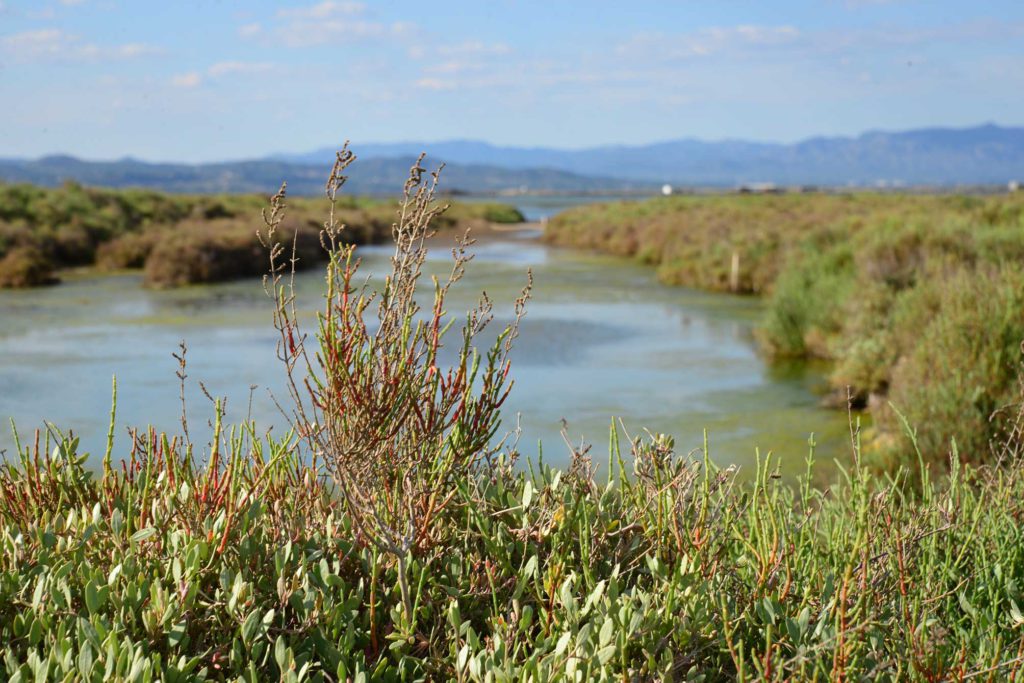
‘‘In a few square kilometres, I can find everything I need to eat,’ says local legend Senor Polet, as his friend stirs an enormous paella in the kitchen.
Outside the ancient house, a barraca style that’s typical of the area, the paddyfields of the Ebre Delta stretch away, stopping only at the base of the distant mountains in one direction and the nearby Mediterranean sea in the other.
Right now, the landscape is bare and brown, but soon the whole area will be a vast green quilted patchwork of thriving Carnaroli rice plants.
Houses like this one dot the paddyfields, once simple homes for people carrying out the work they have done for centuries. They manage the pure waters of the Elbe river through a system of channels and gates in order to grow rice, and then release the water to the sea in the autumn.
We eat heaped plates of local mussels and then tuck into the paella, coloured green by local artichokes and packed full of chunks of rabbit and free range chicken.
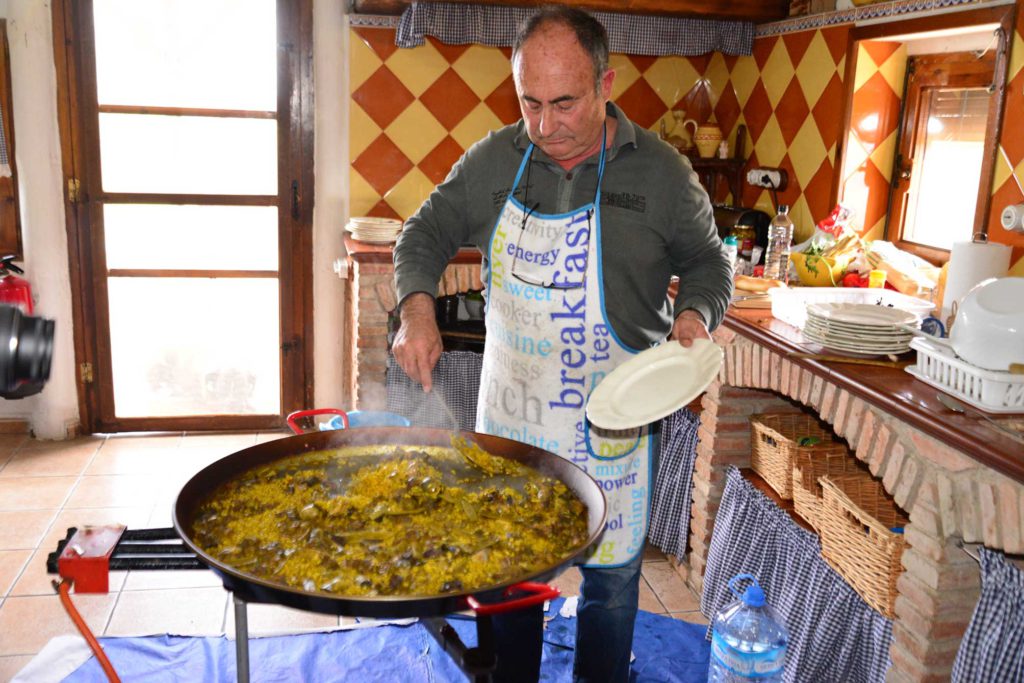
Senor Polet loves rice, he really, really loves rice, and he started an eco-conscious company, DeltaPolet, to share the love. It was one of the first companies that the European Charter for Sustainable Tourism certified in Spain he tells me.
He shows me the traditional way of processing rice, waving a rather vicious-looking serrated scythe at me as he does so. “We cut the stalks with this, and thresh the grains, then we use an iron caduc pole, a traditional Arabic tool, to knock off the husks.”
“Then we toss it in the air so the breeze blows the chaff away and the rice falls to the ground. Finally, it’s sieved to get the best whole grains. Hard work, but you get the best rice.’
Staggering away afterwards, with a full stomach and a bunch of his dried rice fronds to hang over my door’for good luck’, I need a bit of exercise and luckily that’s up next.
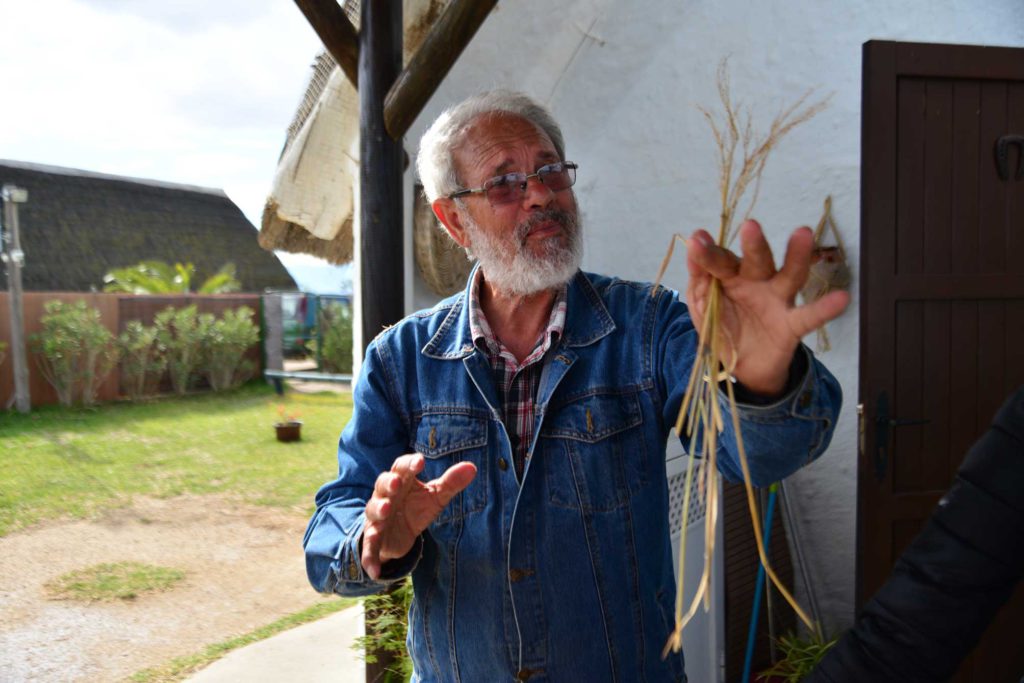
Revolution in Catalonia
The Delta, just a few hours’ drive south from Barcelona, is criss-crossed by small roads, but the best way to explore is by bike and narrow paths and so reach the places cars can’t get to. The area is completely flat, so even those of us out of condition can pedal with ease, but being lazy I opted for an electric bike from DeltaCleta.
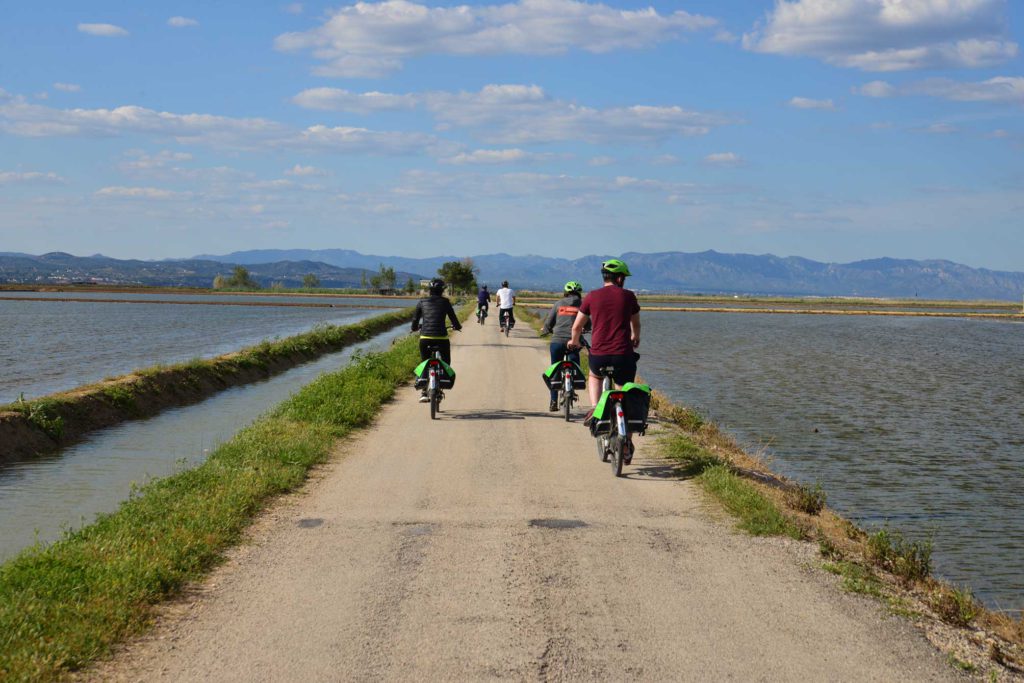
Easy to ride, once you get used to the sharp acceleration, eBikes are perfect for rolling around on the myriad narrow paths that separate the rice fields and lagoons. The silence as you bowl along lets you appreciate the calls of the hundreds of species of birds that inhabit these untouched wetlands.
If you’re not a natural’ Twitcher’ frequent boards help you identify the birds you may see, such as night heron, greater crested grebe, skylark and red-necked nightjar, but even I can recognise the beautiful flamingos, with their stately, fastidious walk and their reflected shimmer of gentle pinks and whites.
The bikes come complete with GPS, freeing you from maps and letting you choose from many pre-programmed routes, while large panniers let you carry all your stuff safely. Battery life seems enormous; after an hour I still had an almost full charge as I rolled up to taste some sake
Sake, seriously?
In the town of L’Ampolla, known as the’Door to the Delta’, Humbert Conti tells me about the Kensho sake he produces in his mother-in-law’s old Catalan farmhouse behind us. His words frequently get lost in the roar of fast trains that pass so close I can almost reach out to touch them.
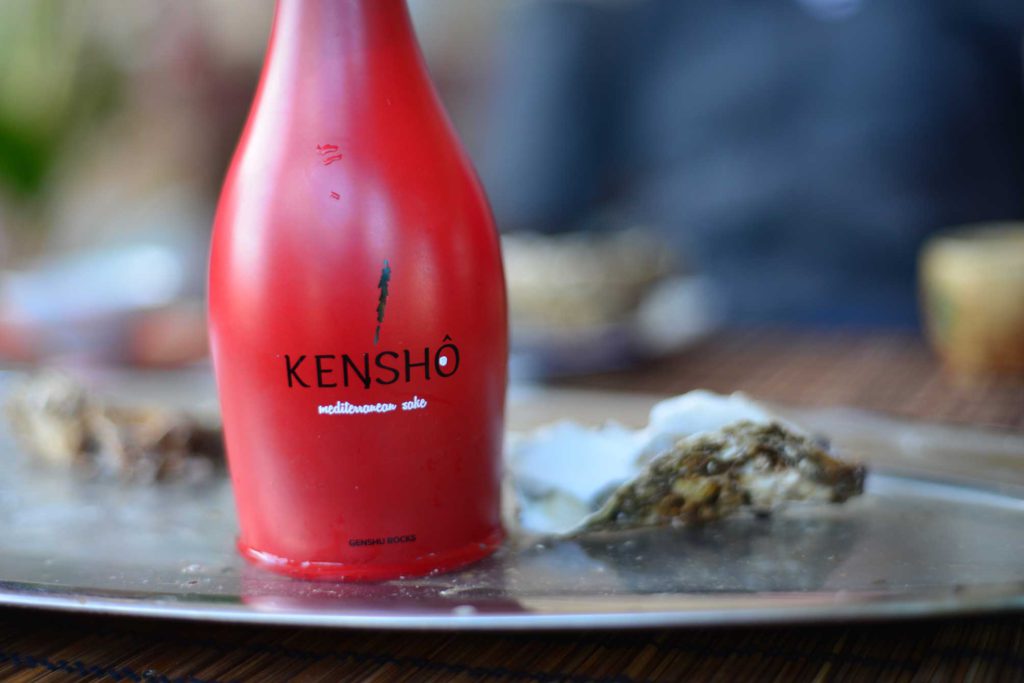
In the gaps between trains I learn that when he met his wife, she’s from the Delta while he is from Barcelona, he discovered the rice production of the area and was determined to become involved in some way.
A love of Japanese food gave him his business idea;’Mediterranean Sake’. All sake is made from rice, but his sake uses Marisma rice exclusively as it grows best here. Add to that the Mediterranean climate and local plants and his sake has unique fruity and citric flavours.
I sample his two main sakes along with a plate of local oysters; the Nigori is unfiltered and so a little cloudy with rice particles, but it is a very authentic dry sake that’s also a little fruity. It’s brewed to a reasonable 12% to suit Western palates. Genshu Rocks is a bit stronger at 17% and finely made from highly polished rice.’It can be paired with food, but it’s even better drunk just on its own,’ says Humbert. So I do.
DeltaCleta pick up the bikes here as part of the tour, so I get a lift back to my hotel.
Foxtrot Delta
Hotel Delta, is a hotel dedicated to sustainable tourism and well-placed for trips in all directions in the region. It’s a simple place with clean, no-nonsense rooms that mimic the features of an old barraca house.
The food however is anything but simple, instead it is remarkably creative, while remaining true to the restaurant’s policy of Zero Kilometre sourcing.
The quality ingredients include rice and eels, a fine local delicacy, and the tasting menu is unpretentious but delightful with dishes such as breaded sea nettles and grilled scorpionfish and, at around €40, a bargain too.
The hotel does various special breaks that include accommodation, meals, gourmet dinner and bike hire all in one price. It’s a great way to easily get the best of the region.
Honey to the Bees
‘They don’t sting, Ow! Ow!’ says our expert guide discovering that some bees have, in fact, managed to sneak into his glove and sting him. It’s very ungrateful considering how much he does for them.
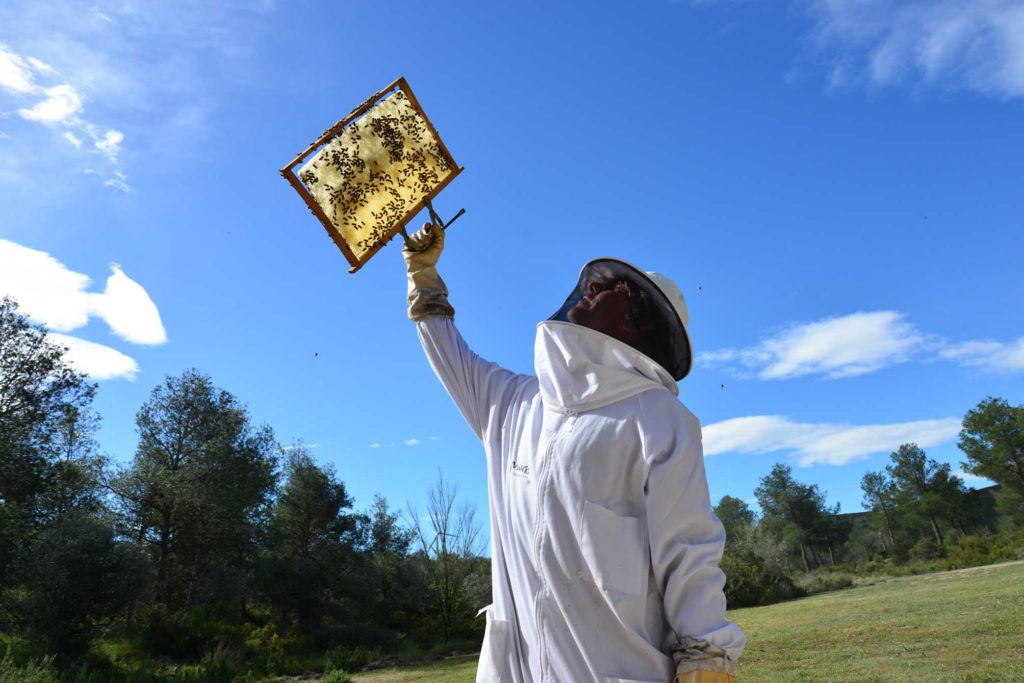
We’ve come up into the lower reaches of the hills where his bees spend winter and early spring. Soon they’ll be taken in lorries to higher locations, a job once done by horse and cart. “The hot summer sun will soon mean no more flowers here, but up in the hills they will find plenty of flowers to feast on,’ he says, while rubbing his wrist ruefully.
I’m all safely kitted out in full beekeeping gear, I look like a strange spaceman in the beautiful landscape. Everywhere I tread a wonderful waft of wild thyme comes up to envelop me and it must be heaven for the bees to forage here.
Back down at the Muria Honey Interpretation Centre, honey producers since 1810, a lively mob of local kindergarten kids, all hilariously dressed in miniature beekeeper outfits, are about to go out to the hives.
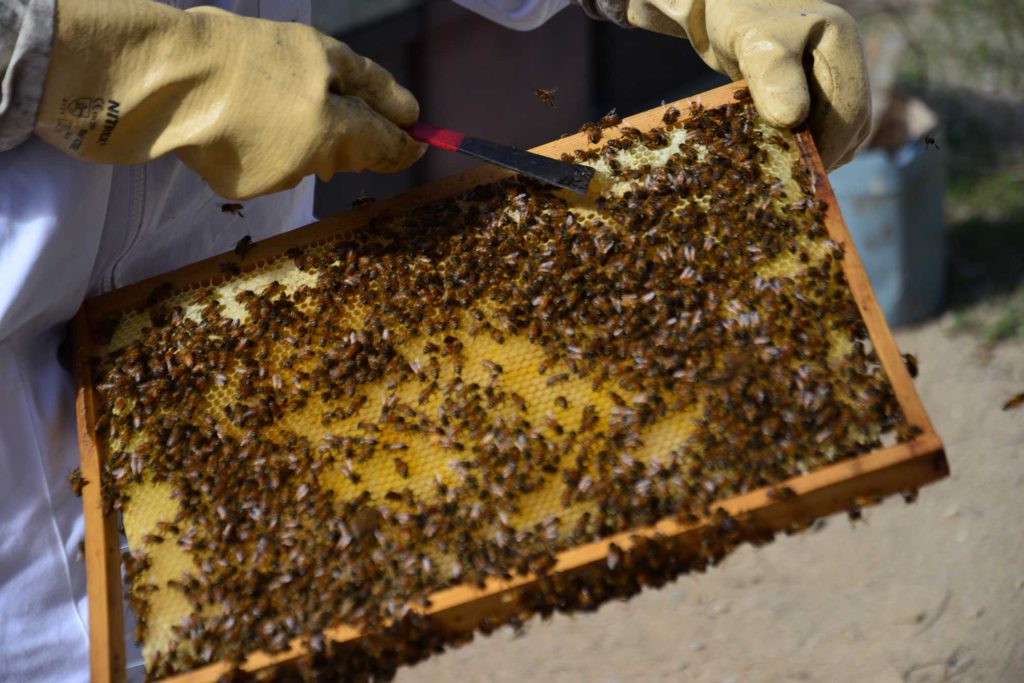
The Centre is big on educating the next generation on the massive eco-importance of bees and has a whole audio-visual experience dedicated to the task. After viewing that, and the factory process, I was soon buzzing around the shop tasting the incredible variety of honeys they make, finally settling on a jar of honey that had won first prize in all of Spain.
You can also buy Muria honeys in many top London stores and amusingly, from a 24 hour honey vending machine set into the shop wall. After all you never know when you might need honey, do you?
Eating Out
The area is full of pleasant, well-priced restaurants, but for a treat I go to one that’s renowned in the region, the Michelin-starred Les Moles. It’s an old farmhouse from the outside but stylishly modernist inside and owner/chef Jeroni Castell, who is self-taught, delivers creative, contemporary cuisine that respects traditional recipes and local produce.
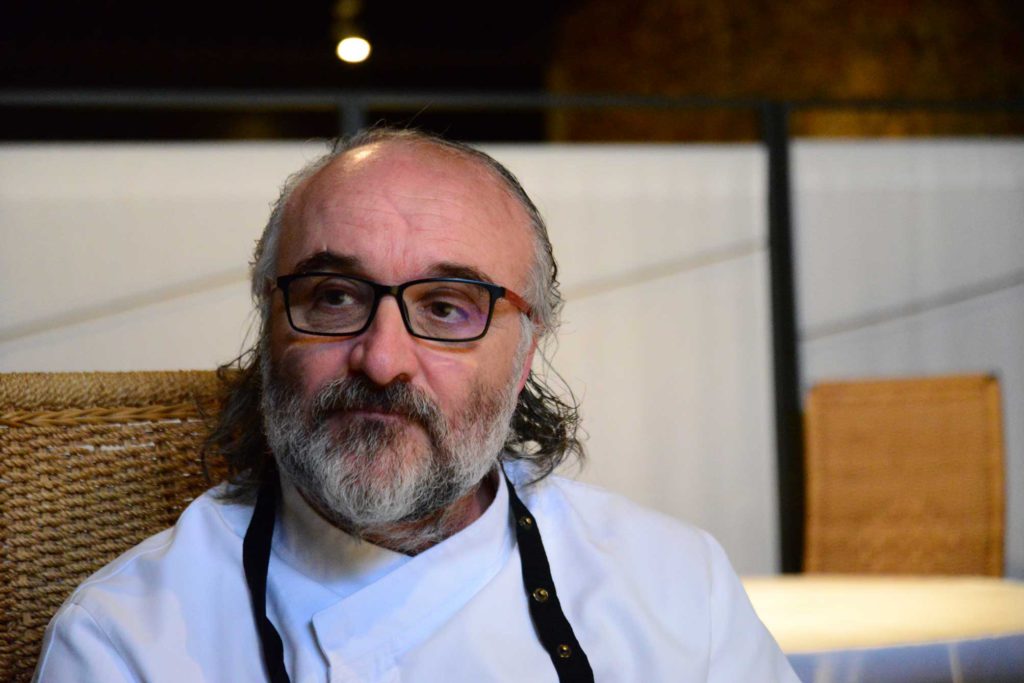
A tasting menu was full of astounding visual ideas and textural and taste-led playfulness and only a couple of dishes failed to wow me. Not bad going when there were 24 of them, including sea cucumber and cod tripe, plus a dish of blue crab from the delta. It was a long lunch but not an oppressive one and the wine list is local and well-chosen by Jeroni’s wife.
Mussel bound
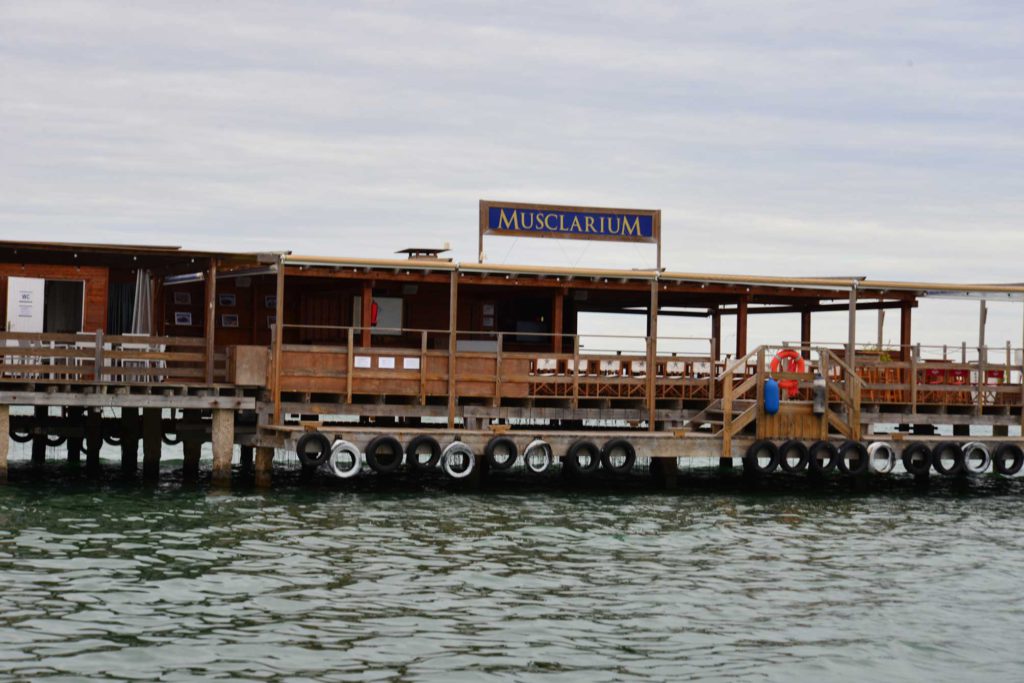
The oysters, mussels and seafood of the Fangar and Alfacs bays in the Ebro Delta, are some of the best in the Mediterranean and just off the coast at Sant Carles de la Rapita lies the Caseta Musclarium where oysters and mussels are farmed.
A short boat ride gets me out to the floating platform that controls the operation and which serves also as another education centre and, hurrah, a kind of restaurant too.
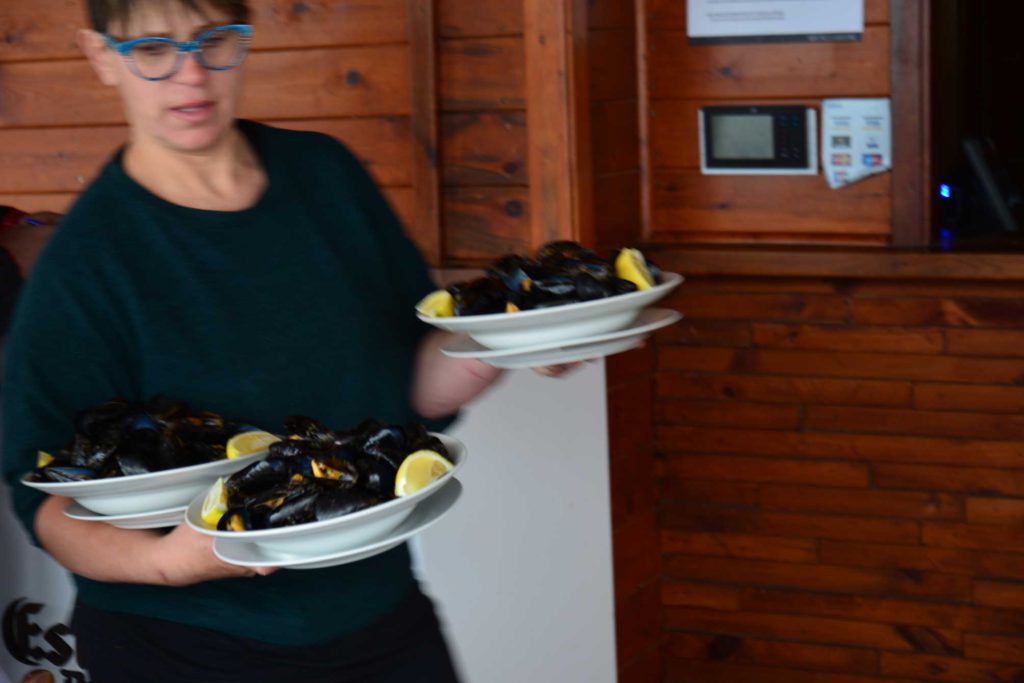
The chef pulls up ropes of mussels and oysters and quickly opens the latter and steams the former. A glass or two of cava and soon I am surrounded by empty shells and in a kind of gourmet trance. These really are some of the best I have ever eaten, certainly the freshest having, just been pulled up.
Back on land I just have time to visit the Arion Natural Museum of Ulldecona, a grove of forty of the oldest Farga olive trees in the Iberian Peninsula. The numbers of millennial trees like these was dropping, mostly through being sold for people’s gardens or by being dug up by farmers, but now the trees are protected.
New technology has in fact identified that at least one tree here, the Farga de l’Arión, is 1,700 years old and was planted during the reign of Constantine the Great.
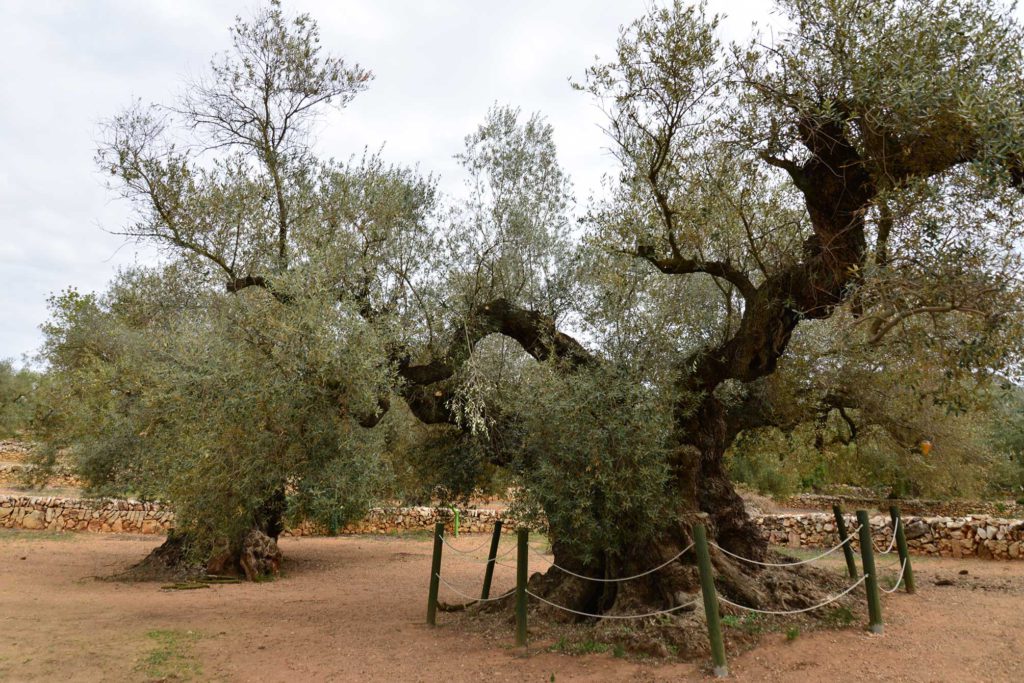
The olive oil produced from these venerable, gnarled and twisted trees, is marketed as ‘millennial olive tree oil’ and at a high price.
In fact what has struck me most about this marvellous and unsung part of Spain is the way everyone, young and old, is interested in sustainable farming on land and in the sea, in protecting habitat and wildlife and in sourcing delicious food from as close to the kitchen table as possible..
May the force stay with them.
